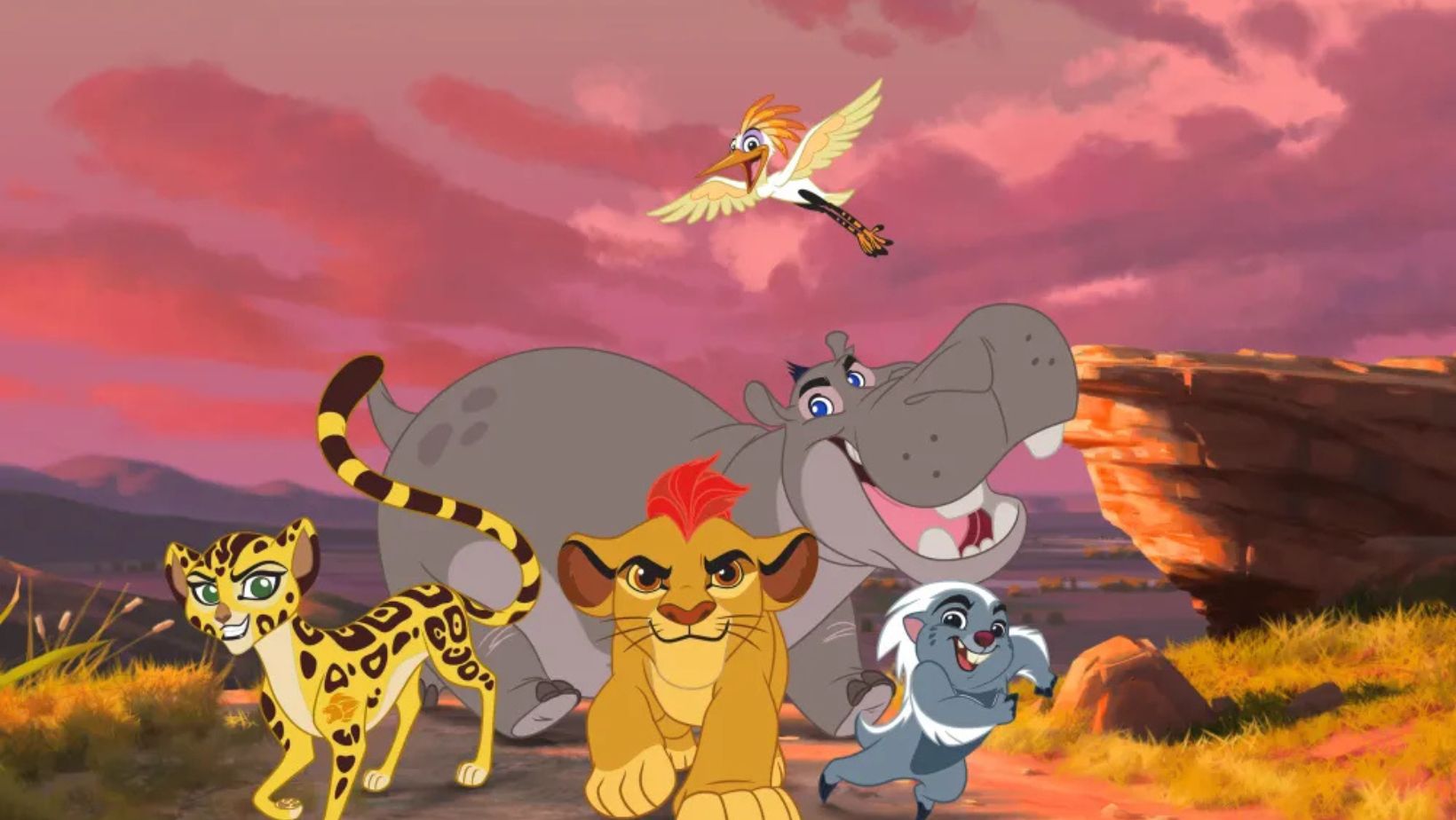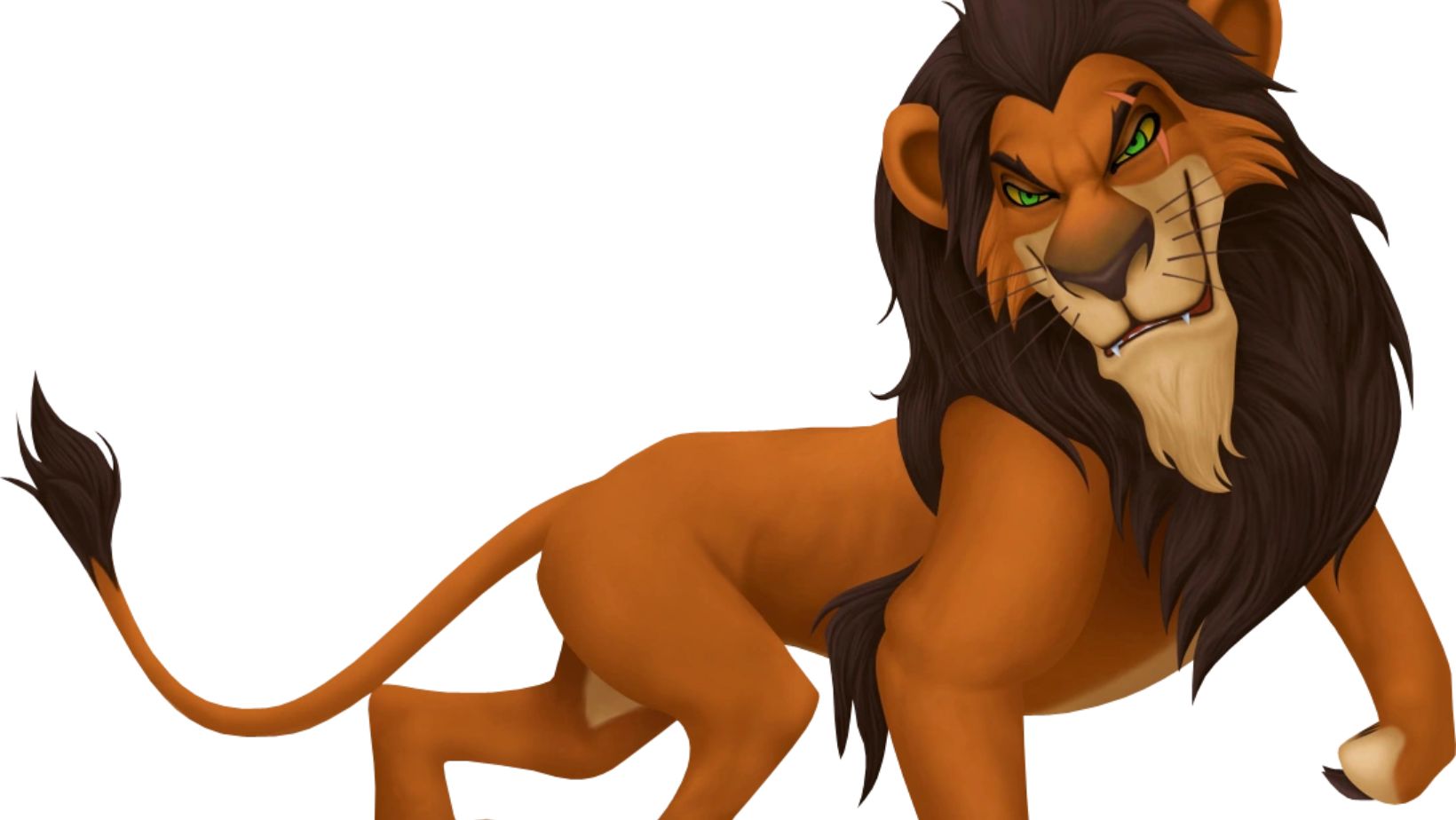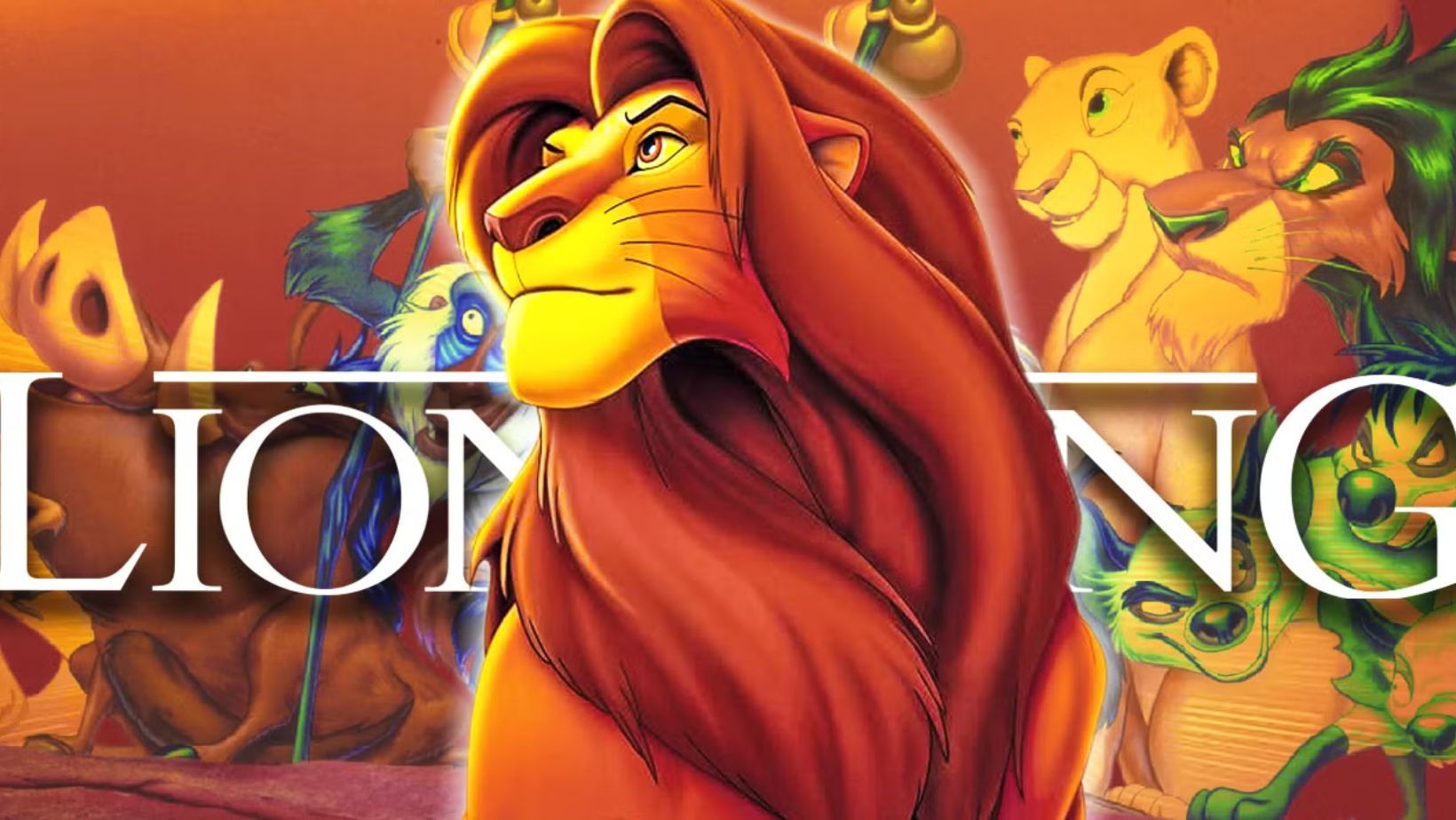Welcome to the enchanting world of The Lion King! This beloved franchise captivates audiences with its rich storytelling, memorable characters, and profound themes of family, leadership, and the cycle of life. At its heart lies a fascinating genealogy that connects the majestic lions of Pride Rock. Exploring this royal family tree not only deepens our understanding of the characters’ motivations but also highlights the intricate relationships that shape their destinies. Join us as we journey through the legacy of Simba, Mufasa, and the entire lion lineage, uncovering the royal connections that make this story timeless.
The Circle of Life: Understanding the Concept

In The Lion King, the “Circle of Life” is a central theme that represents the interconnectedness of all living things. This concept emphasizes that every creature, from the smallest insect to the mightiest lion, plays a vital role in the ecosystem. In the film, this cycle begins with the birth of Simba and continues through his journey to adulthood and leadership.
The genealogy of the lion pride is intricately linked to the Circle of Life. Each generation of lions contributes to the pride’s legacy, with leaders passing down wisdom and responsibilities to their offspring. Mufasa, as Simba’s father, embodies this connection, teaching his son about the importance of maintaining balance within their kingdom. Ultimately, the Circle of Life signifies that while individual lions may come and go, their lineage and the lessons learned endure, ensuring the survival and strength of the pride for generations to come.
Simba: The Protagonist and His Lineage
Simba is the central character of The Lion King and represents the journey from innocence to maturity. He begins as a playful cub, eager to explore his kingdom. However, after the tragic death of his father, Mufasa, Simba faces immense guilt and flees the Pride Lands. His journey of self-discovery leads him back to reclaim his rightful place as king.
Simba’s parents, Mufasa and Sarabi, play crucial roles in shaping his character. Mufasa, as the wise and noble king, teaches Simba about responsibility, the Circle of Life, and the importance of family. Sarabi, his mother, is a strong and supportive figure who embodies grace and resilience. Together, they instill values in Simba that guide him throughout his life.
Simba’s lineage connects him to the royal bloodline of the Pride Lands. This heritage grants him the right to lead and protect his kingdom. Ultimately, his growth and the teachings from Mufasa and Sarabi help Simba fulfill his destiny, ensuring the continuity of the lion pride and the legacy of leadership.
Mufasa: The King of Pride Rock
Mufasa is the revered king of Pride Rock in The Lion King. His reign is marked by wisdom, strength, and a deep sense of responsibility. Mufasa embodies the qualities of an ideal leader, teaching the importance of the Circle of Life and the balance of nature. His fair and just rule earns him the respect and loyalty of the animal kingdom.
Mufasa’s relationship with his son, Simba, is central to the story. He is a loving father who guides Simba through his early years. Mufasa instills essential life lessons, preparing Simba for his future role as king. Their bond is filled with warmth, humor, and respect.
In contrast, Mufasa’s relationship with Scar, his brother, is fraught with tension. Scar’s jealousy over Mufasa’s throne leads to resentment and betrayal. Despite Scar’s treachery, Mufasa remains compassionate and hopeful, believing in the good in others. This dynamic shapes the story’s conflict and highlights Mufasa’s role as a noble leader. His tragic fate significantly impacts Simba and the entire pride, making Mufasa a pivotal figure in the Lion King’s legacy.
Scar: The Villain of the Tale

Scar is one of the most iconic villains in The Lion King. As Mufasa’s younger brother, he is deeply envious of Mufasa’s power and position. This jealousy fuels Scar’s desire to take the throne for himself. His cunning and manipulative nature make him a formidable antagonist.
Scar’s relationship with Mufasa is complex. He craves the respect and authority that Mufasa commands. Scar’s bitterness grows after being overshadowed by his brother’s strength and wisdom. This resentment leads Scar to plot Mufasa’s downfall, showcasing his willingness to betray family for power.
Scar’s actions have profound effects on the royal family dynamics. After Mufasa’s death, Scar deceives Simba into believing he is responsible. This manipulation leads Simba to exile, allowing Scar to seize control of Pride Rock. Under Scar’s rule, the pride faces devastation and neglect, contrasting sharply with Mufasa’s just leadership. Ultimately, Scar’s treachery not only disrupts the family but also threatens the balance of the entire kingdom, solidifying his role as the story’s central villain.
Sarabi: The Queen and Mother
Sarabi is a pivotal character in The Lion King. As Mufasa’s queen, she embodies grace and strength. Sarabi supports her husband while also nurturing her son, Simba. Her role as a mother is central to the story, showcasing her deep love and concern for her family.
Sarabi’s strength shines through during challenging times. After Mufasa’s death, she faces immense grief and loss. Despite Scar’s oppressive rule, she remains resilient, advocating for her pride. Her courage helps to inspire hope among the lionesses and the pride.
Sarabi also wields influence within the pride. She serves as a voice of reason and wisdom. Her perspective is vital in guiding others, particularly when Simba is away. Even in Scar’s reign, Sarabi challenges his authority, demonstrating her loyalty to her family and the values they uphold.
In summary, Sarabi’s character exemplifies the qualities of a strong queen and mother. She is not only a supportive partner to Mufasa but also a fierce protector of her cub. Her strength and influence are crucial in navigating the complexities of pride dynamics and familial love.
Kiara: The Next Generation
Kiara is introduced in The Lion King II: Simba’s Pride as Simba and Nala’s daughter. She represents hope and continuity for the royal lineage of Pride Rock. As a young cub, Kiara is curious and adventurous, embodying the spirit of exploration. Her character development highlights the importance of learning from the past while forging her own path.
Kiara’s significance goes beyond her royal bloodline. She plays a crucial role in bridging the gap between the lions and the Outsiders. Through her relationship with Kovu, a member of the Outsider pride, Kiara challenges old prejudices. This connection promotes understanding and unity, breaking the cycle of hostility.
As Kiara matures, she becomes a strong leader in her own right. She demonstrates compassion and bravery, traits essential for a future queen. Her willingness to stand up for what is right makes her a relatable character for audiences. Kiara’s journey reflects the ongoing legacy of the Lion King, emphasizing themes of love, acceptance, and the importance of family ties.
In summary, Kiara symbolizes the next generation of Pride Rock. Her character carries forward the ideals of her parents while advocating for harmony and understanding among all lions.
Kovu: The Outsider with Royal Connections
Kovu is introduced in The Lion King II: Simba’s Pride as an Outsider who has a complex background. He is raised by Zira, Scar’s loyal follower, and is believed to be the heir to Scar’s legacy. This connection creates tension, as Simba and his pride view Kovu with suspicion. However, Kovu’s character challenges these perceptions throughout the story.
Kovu’s relationship with Kiara is central to the narrative. They meet as young cubs and form a bond that defies the boundaries set by their respective prides. Kiara sees beyond Kovu’s lineage, recognizing his true character. Their friendship grows into love, symbolizing hope for reconciliation between the lions and Outsiders.
This relationship has significant implications for the royal family dynamics. It brings conflict between Simba and Kovu, as Simba fears repeating the past with Scar. Ultimately, Kovu’s love for Kiara helps him reject Zira’s vengeful teachings. By choosing unity over division, Kovu plays a key role in healing the rift between the two prides.
In summary, Kovu’s journey illustrates the importance of personal choice and redemption. His connection to Scar adds depth to his character, making him a pivotal figure in the story of The Lion King.
The Importance of Allies: Other Key Characters
In The Lion King, characters like Timon, Pumbaa, and Zazu play crucial roles beyond comic relief. Timon and Pumbaa introduce Simba to the philosophy of “Hakuna Matata,” encouraging him to embrace a carefree lifestyle. This philosophy helps Simba cope with his traumatic past but also delays his return to Pride Rock. Their friendship becomes a safe haven for Simba, offering support during his struggles.
Zazu, the loyal hornbill, serves as an advisor to Mufasa and later Simba. He provides wisdom and guidance, often reminding Simba of his responsibilities. While Zazu may be more serious than Timon and Pumbaa, his role is vital in keeping Simba grounded. He emphasizes the importance of leadership and duty, helping Simba understand the weight of his future role as king.
Together, these characters shape Simba’s growth and decisions throughout the story. They represent different aspects of friendship and loyalty, showcasing how allies can influence one’s journey. Ultimately, their presence highlights the importance of support systems in overcoming challenges and embracing one’s true identity.
The Legacy of the Lion King: Themes of Family and Leadership

The Lion King delves deep into themes of family loyalty and leadership. At its core, the story emphasizes the importance of familial bonds. Simba’s journey is shaped by his relationships with Mufasa, Sarabi, and Kiara. Their guidance and support highlight how family can influence one’s identity and choices.
Leadership is another significant theme in the film. Mufasa embodies the qualities of a wise and just king, teaching Simba about responsibility and the Circle of Life. As Simba grows, he learns that true leadership involves compassion, courage, and the ability to learn from one’s past mistakes.
These themes resonate powerfully with viewers of all ages. They encourage audiences to reflect on their own family dynamics and the responsibilities that come with leadership roles. The emotional depth of The Lion King leaves a lasting impact, reminding us that our choices affect not just ourselves but also our families and communities. Ultimately, the film serves as a timeless exploration of the complexities of family and the weight of leadership, making it a beloved classic in animation.
Conclusion: Lion King
The exploration of The Lion King’s genealogy reveals the intricate relationships that shape its narrative. From the noble lineage of Simba to the complex dynamics involving Scar and Kovu, each character contributes to the story’s depth. The themes of family loyalty and leadership resonate strongly, making the film more than just a tale of adventure. As you revisit The Lion King, consider the rich storytelling and the enduring lessons it imparts about identity, responsibility, and the ties that bind us. This classic continues to captivate audiences, reminding us of the timeless nature of its message.
FAQs
What inspired the creation of The Lion King?
The Lion King was inspired by various sources, including Shakespeare’s Hamlet, African culture, and the concept of the “Circle of Life.” The filmmakers aimed to create a timeless story about leadership, family, and the balance of nature.
How does The Lion King address themes of responsibility?
The Lion King explores the theme of responsibility through Simba’s journey. After the death of Mufasa, Simba must confront his past and learn to embrace his role as king, highlighting the importance of accepting one’s responsibilities for the well-being of the pride.
Are there any real-life parallels to the Lion King’s family dynamics?
Yes, the family dynamics in The Lion King can be compared to real-life royal families, where power struggles, betrayals, and the significance of lineage often play a crucial role in leadership. The story reflects the complexities of familial relationships in a royal context.
How has The Lion King influenced popular culture?
The Lion King has had a significant impact on popular culture through its memorable characters, iconic music, and universal themes. It has inspired numerous adaptations, merchandise, and even a successful Broadway musical, solidifying its place in cultural history.
What lessons can viewers learn from the characters in The Lion King?
Viewers can learn important lessons about courage, redemption, and the importance of community from characters like Simba, Nala, and Rafiki. The film emphasizes that personal growth often requires facing one’s fears and learning from the past, making it relatable to audiences of all ages.

